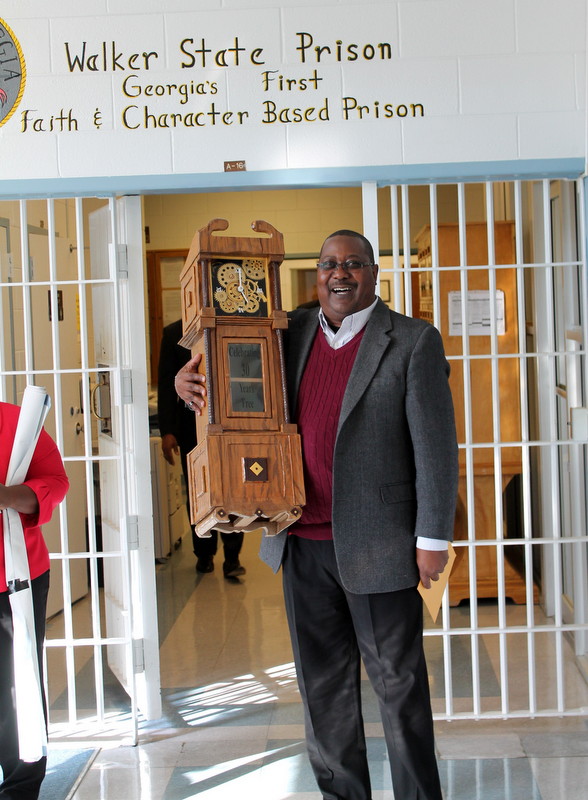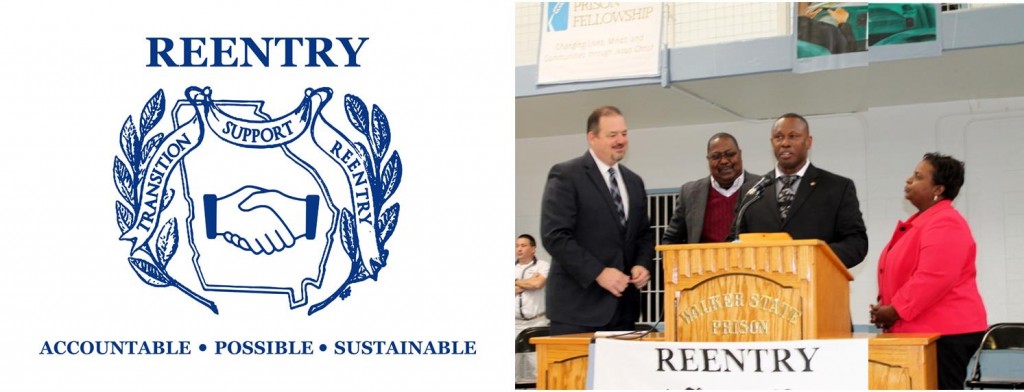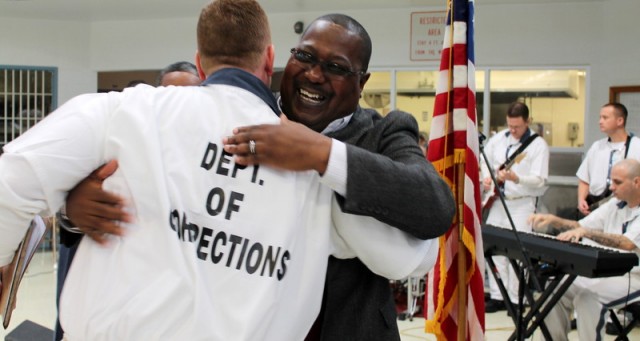Moving Beyond Soft Skills: Applying Noncognitive Factors in Georgia’s Schools
This article is the first in a series of posts that will address key issues impacting college and career readiness in Georgia, as discussed in the overview report, Fortifying Pathways: Themes to Guide College and Career Readiness in Georgia.
By Aundrea Gregg and Eric Wearne
Introduction
For each student in Georgia, education is a personal experience that will ultimately impact his or her life’s circumstances and opportunities as an adult. Students who matriculate from high school on to college graduation and careers greatly increase their earning potential as adults and are less likely to experience family breakdown, need government assistance, and become entangled in the legal system than those who fall through the cracks.
Stunted Success
In Georgia, however, the number of students who do not advance beyond K-12 remains astronomically high. Over 1 in 5 young adults in Georgia are not attending school, not working, and have no degree beyond high school. Additionally, almost 1 out of every 3 Georgians does not graduate from high school in four years, placing Georgia 48th in the country.
Remediation
For students who do graduate high school, many still leave inadequately prepared for the demands of universities and Georgia’s industries. In 2011, Complete College America reported that 18% of freshman entering 4-year universities in Georgia required remediation in at least one subject area. Another 37% of freshmen entering 2-year colleges required remediation as well. The need for remediation not only significantly lowers the likelihood of completing a degree program; it also comes at an annual cost of millions to the state.
Employer Satisfaction
As educational attainment in K-12 and college sets the stage for placement in the workforce, reports have noted the discord between high school and college graduates’ preparedness and employers’ expectations for new hires.
Whether in search of applicants with rudimentary skills, such as the ability to arrive on time every day, or applicants in possession of the skills to fill advanced technical positions, approximately 5,000 jobs in Georgia remain unfilled in 2015 due in part to a “skills gap.” A study in Michigan found that businesses across the state spend about $222 million each year correcting the shortcomings of their employees who leave high school without the basic skills needed for their job. Given the exorbitant cost, it is understandable why employers in Georgia would not want to spend time training employees for skills they should already possess.
Something More Than Academics
Providing access to quality education from the start of kindergarten all the way through high school and beyond is of course necessary for Georgia’s citizens to thrive and prosper.
To narrow the gaps, major reforms have focused almost exclusively on improving student achievement by employing more rigorous academic standards in schools, as measured by reading and math scores. Though academic achievement is certainly vital to success, this narrowed paradigm for student advancement has done little to change the status quo regarding outcomes.
A Gray Area
Grade Point Averages (GPA), scores on the SAT, and completion of state exit exams are all black and white expectations on the pathway to college and a career. Probably more important, however, are the challenges students face in terms of cultivating themselves as individuals, of forming the habits that support personal growth, and of fashioning an early idea of what their purpose in life will be.
With a wider and more abstract understanding of readiness, motivation, responsibility, planning and decision-making, Georgia can begin to define a current gray area of learning needs that have been underdeveloped in K-12 schools.
Not “Soft Skills” – Necessary Noncognitive Factors
The term “soft skills” has long been used to describe non-academic learning factors that aid students’ ability to grasp content knowledge. There is, however, nothing soft about the personal traits such as perseverance and self-control; skills such as time management and goal setting; and interventions such as attachment to community and access to support systems that shape a student’s mindset for learning, both positively and negatively.
This wide package of traits and tools comprise what have been commonly referred to in a large body of research as noncognitive factors. While noncognitive factors have been given credence as important components of student success, there are very few programs and policies that encourage their development in students, schools, and communities.
This post seeks to explain the importance of these skills and propose recommendations that support their development in K-12 settings in Georgia.
The Value of Developing Noncognitive Factors
Preparing students to succeed in school and life requires the development of two sets of skills: cognitive abilities that constitute what is often referred to as hard knowledge, as well as noncognitive factors that help individuals apply that knowledge. Whereas cognitive functions include processes such as thinking, reasoning, and remembering, noncognitive factors include a person’s aptitude for planning, emotional maturity, interpersonal interactions, and communication skills – both verbal and nonverbal.
Noncognitive factors largely shape a person’s behavior and greatly influence their ability to function in educational settings. For students with a strong base of noncognitive factors, such as strong study habits, eagerness to ask questions, positive self-image, and determination to reach goals, just to name a few, the ability to bridge knowledge gained in the classroom with actual success increases substantially.
Further, research led by the Center for the Economics of Education concluded that noncognitive factors can be a strong predictor of compatible occupations, wage potential, and the likelihood of risky behavior as an adult.
Noncognitive Factors Chart
| Traits: | Self-Control | Perseverance | Realistic Self- Appraisal | Responsibility |
| Skills: | Planning & Decision Making | Constructive Time Management | Conflict Resolution | Critical Thinking |
| Interventions: | Youth Programs | Parental Involvement | Connection to Strong Support Person | Caring School Environment |
Noncognitive Factors and College and Career Readiness
Noncognitive factors are becoming more prominent considerations in college admissions and hiring processes across the country. This is largely due to institutions of higher learning and employers desiring candidates that possess abilities that extend beyond mastery of math and English.
Research led by Dr. William Sedlacek, a foremost expert on noncognitive variables and Professor Emeritus of Education at the University of Maryland, highlights that assessing noncognitive abilities in admissions processes is an important basis for colleges and employers to discern intelligences beyond those tested on standardized exams such as the SAT.
One practical example of this is the applicant assessment board for the Gates Millennium Scholarship. This project has focused entirely on evaluating noncognitive factors to discover students’ experiential intelligence – the ability to interpret information in a changing context or be creative – and contextual intelligence – the ability to adapt to changing environments and negotiate within a system. While neither of these intelligences is tested on the SAT, which only examines knowledge learned in a fixed context, the Gates’ board has had some success selecting students ready to perform in rigorous academic settings at institutions of higher learning. It should also be noted that Gates Scholars include demographics with statically lower chances of reaching college graduation such as first-generation college goers, low-income, and minority students.
As the consideration of noncognitive factors has allowed institutions to rethink admissions, hiring, and retention strategies, their recognized importance as a critical component of college and career readiness has increased for all students.
Opportunity: Building Strong Relationships between Schools and Students
As a means to develop noncognitive abilities, students require access to small-scale connections. Dr. Sedlacek, in his list of noncognitive variables, emphasizes strong support systems – specifically “a strong support person” that students can turn to to provide guidance on common child-to-adult transition situations. Emphasizing this point, Ruby K. Payne, Ph.D notes in her acclaimed book A Framework for Understanding Poverty, “support systems are simply networks of relationships.”
Why Relationships Matter
Fostering personal, strong relationships between teachers and students and even schools and families is important for many reasons. On the most basic level, establishing trust, communication, and understanding – all commonly accepted components of a healthy relationship – are prerequisite to creating environments in schools where students will thrive and parents participate.
Teachers who know their students personally are better equipped to tailor lesson plans and speak directly to specific needs. For historically disadvantaged groups such as young men of color and first generation college students, accessing mentors at school where familiarity with the college process is limited at home is key to closing persistent educational gaps.
Barriers to Opportunity
Home Matters
Noncognitive traits develop most prominently during early childhood, and parents play an important role in developing the noncognitive abilities of their children. Though noncognitive factors are more malleable, even during later stages in life, home life matters greatly and students may miss development of these skills due to issues such as family breakdown or poor socio-economic circumstances (as education levels of parents also factor into development).
While active parental involvement and a stable home environment are foundational to the noncognitive skills training that should take place in school, unfortunately, not all children in Georgia find the role models they need at home.
Though it only takes the support of one invested adult to guide a child, studies find that the representation of two parents in the home can greatly increase a child’s educational attainment. One study found in examining a sample of children who completed eighth grade that high school graduation rates were 90 percent for those in two-married-biological-parent families, 75 percent for those in single-mother-divorced families, and 69 percent for those in single-mother-never-married families. Similarly, when it comes to college attendance, 71 percent of children who live with two married, biological parents went on to college, while only half of children living with only their mothers took this route.
Increasing parental involvement in early childhood development, as well as maintaining positive relationships between parents and between parents and their children remains a paramount barrier to improving outcomes for students in K-12 and in adulthood.
Academic Attainment Rules
As it currently stands within many schools and school systems, the focus on noncognitive factors is embedded haphazardly through character education hours or small discussions about the need to build study habits. In fact, many of the habits and skills colleges and employers deem most valuable, are often addressed as periphery learning needs and go underdeveloped through curricula.
The University of Chicago Consortium on Chicago School Research notes, “teachers would play a vital role in helping students move from being passive recipients of academic content to active learners” who wield noncognitive abilities to progress through elevated academic challenges and, more importantly, demonstrate understanding in real world situations. To do this, focused development of noncognitive factors must parallel instruction on hard content in schools.
Misplaced Incentives
More rigorous academic standards remains the exclusive focus of schools because educational institutions are incentivized to worry about themselves as institutions, or on policy as an abstract, and not on students as individuals. In other words, policymaking has become too big in education and it incentivizes the wrong things. Schools worry about test scores. Much like colleges and universities worry about enrollment and sometimes retention, these are all measures that point back on the institutions, but say nothing about how well-prepared their students are to move on to college or a career. There remains an opportunity to better prepare Georgia’s students for college and careers by shifting more of the focus in schools from increasing academic standards to cultivating noncognitive factors.
Recommendations: What is Working
Continue Research on Strengthening Families and Communities
The importance of a stable home life cannot be stated enough in the process of cultivating noncognitive factors for Georgia’s children, although the impact of family breakdown and what to be done about this problem remain outside of the scope of this paper. Below are recommendations from Georgia Center for Opportunity’s College & Career Pathways Working Group regarding what is being done and what might be replicated within existing structures.
Intrusive Advising at All Levels of Schooling
Paul Tough highlights in his recent New York Times article, “Who Gets to Graduate?” the powerful feelings of stress that at-risk students can feel without the assistance of parents and mentors to mitigate minor bumps in the road. The point is made how quickly a first failing mark or trouble with a roommate can lead to feelings of inadequacy, and premature dropping out.
Educational institutions such as Georgia Gwinnett College (GGC) and Paine College in Augusta, GA have begun to employ new advising strategies that combine personal relationship building with “tough love” to ensure at-risk students understand challenges that are common in college, reprogram bad habits, and overcome obstacles to stay on track for graduation.
Model: Georgia Gwinnett College
As an institution with an access mission, GGC’s students enroll with varying levels of preparedness for college. For instance, 30-40% of CCG’s incoming students enroll in at least one remedial class, meaning a large cross-section of students is off track to graduate from the start. To safeguard the large at-risk population, GGC’s administration has made it a point to increase access to teachers and administration. The school boasts no office hours, students may arrange meetings at any time, and students are given the (school issued) mobile number of every professor.
Additionally, through GGC’s intrusive advising programs, students who have already been placed on academic probation or worse receive a second chance to reach graduation. Under the watchful eyes of counselors, teachers, and peer coaches, students receive intense, regular engagement, mandatory tutoring and workshops, as well as student success classes.
While tactics such as intrusive advising remain largely isolated in the higher education realm and for at-risk students, these strategies could greatly influence college and career strategies for all students in K-12. At GGC, these “high engagement, individual focused efforts” created to serve a substantially high-need population have shown some success in student retention and graduation.
Conclusion
Parallel to the development of vital traits and skills at home, schools and communities are equally important places where students hone the necessary skills they will need for adulthood. Ideally parents, schools, and communities should work together to develop these noncognitive factors on all fronts. Schools and institutions would be well-served by taking these developmental gaps into account and addressing them formally.
Strong, healthy relationships between teachers and students, schools and families can be the x-factor that allows students to reach success. Interventions must extend beyond rigorous academic standards. Cultivating noncognitive factors through K-12 provides a more holistic approach to college and career readiness.











